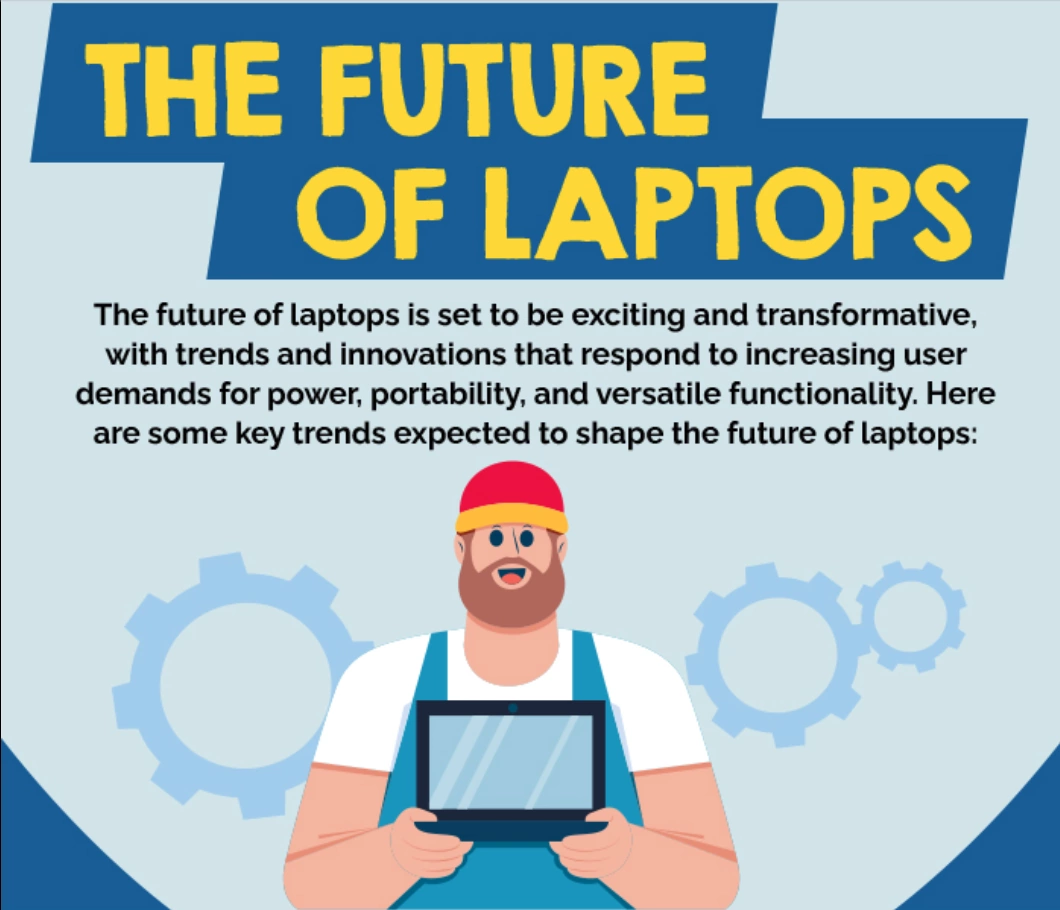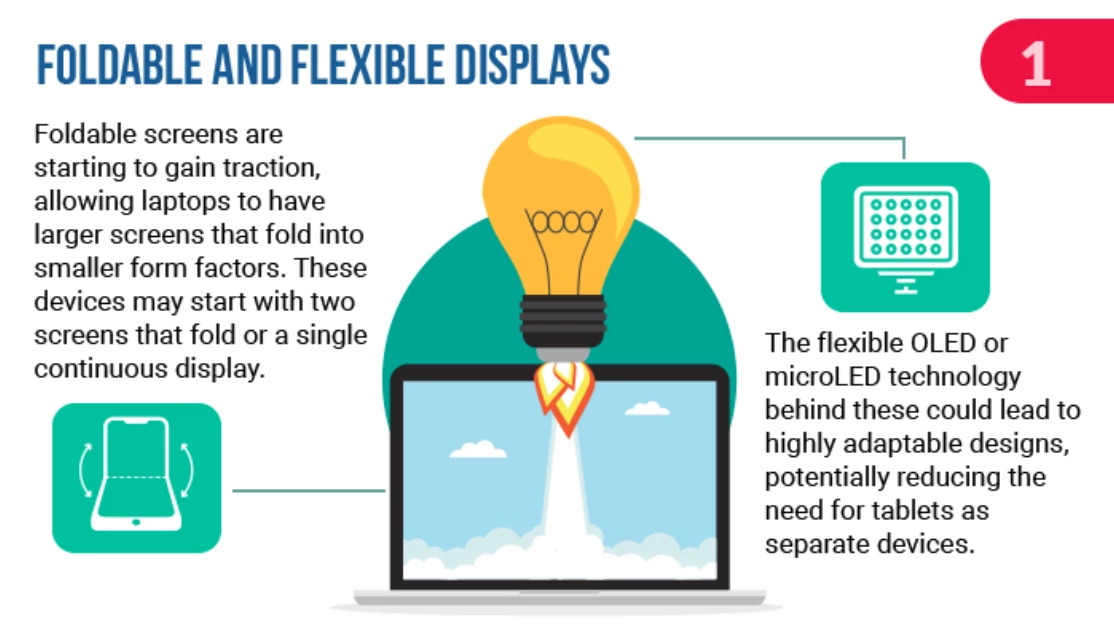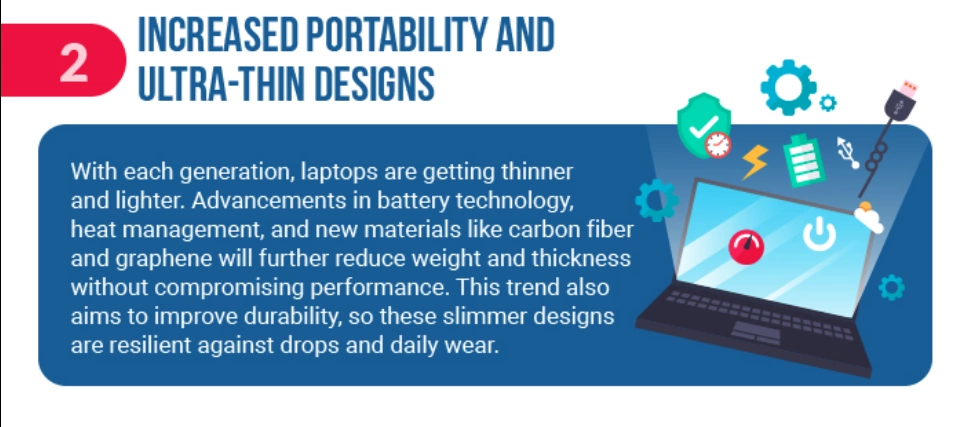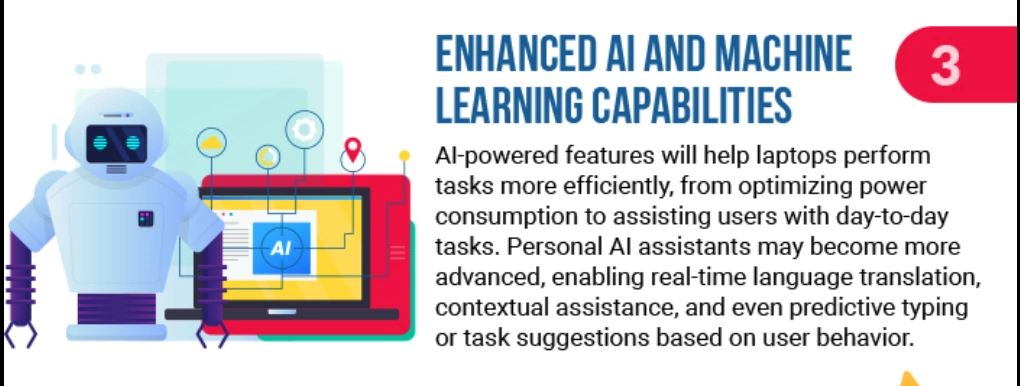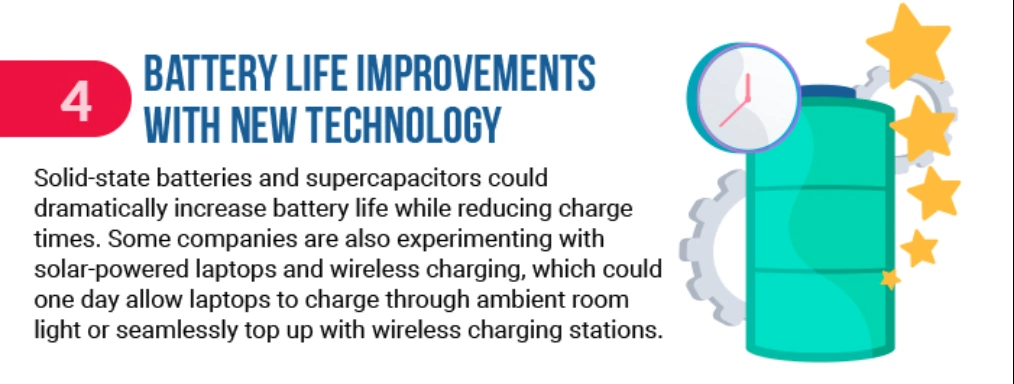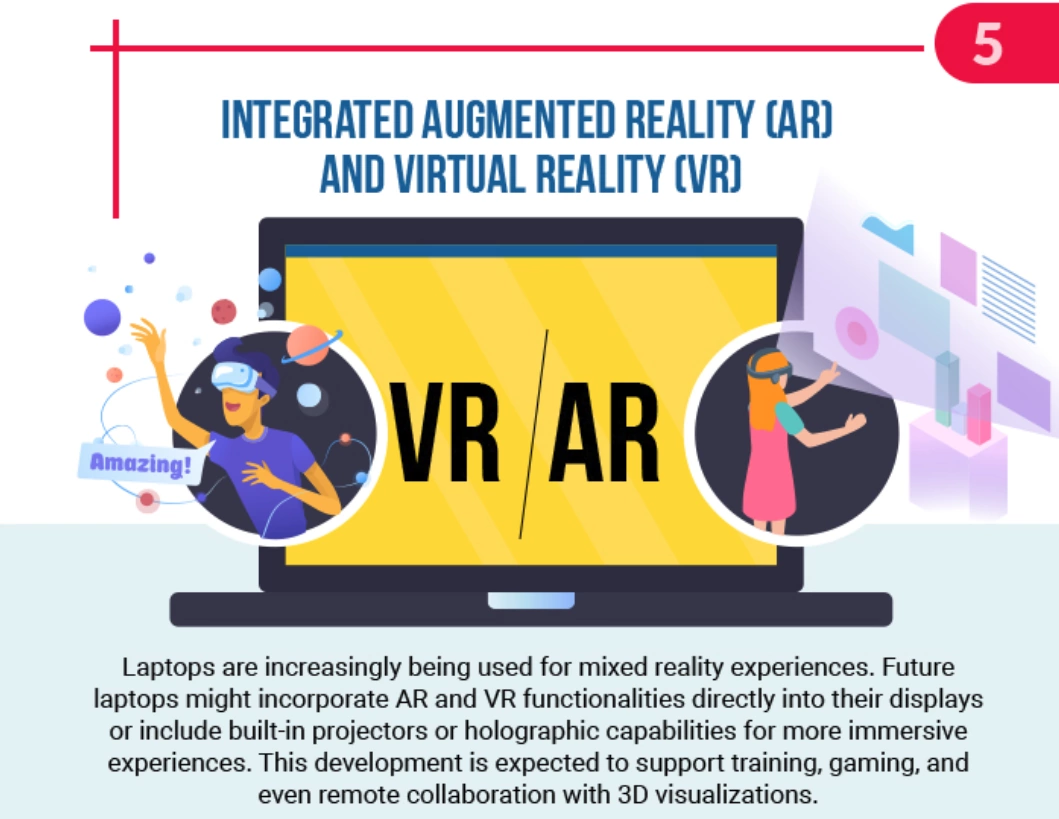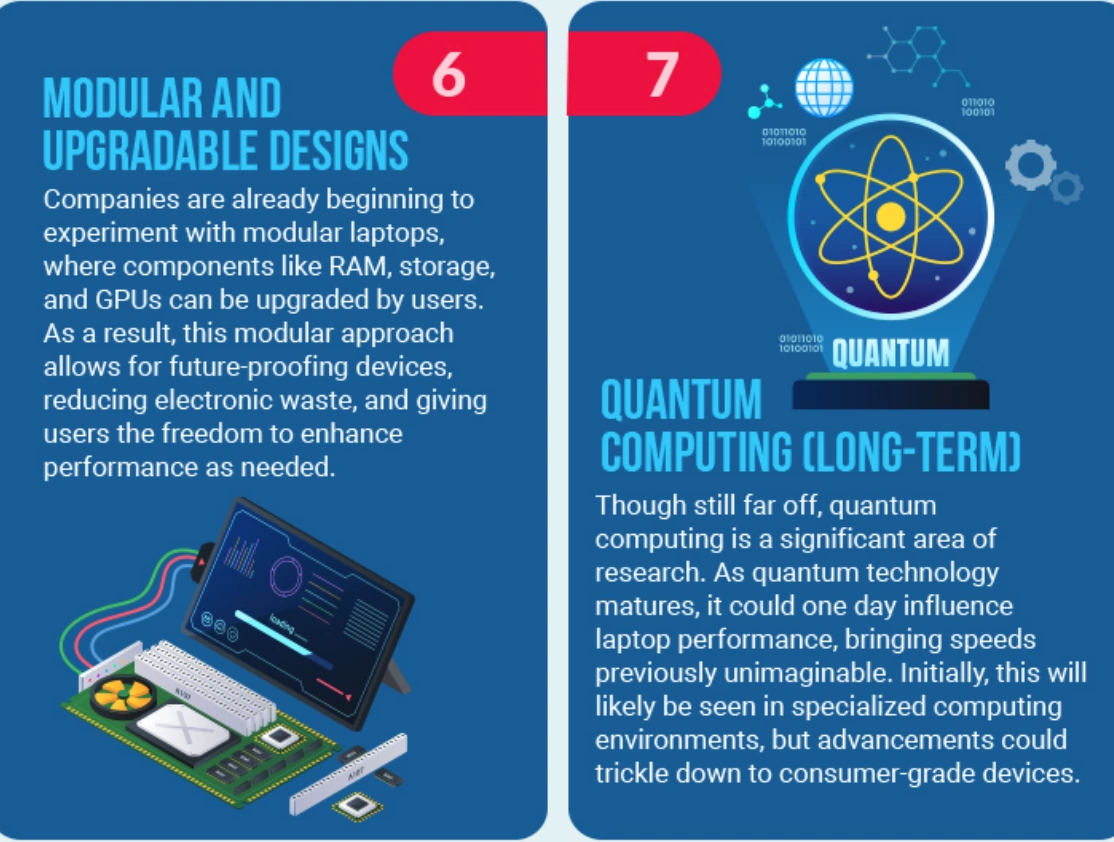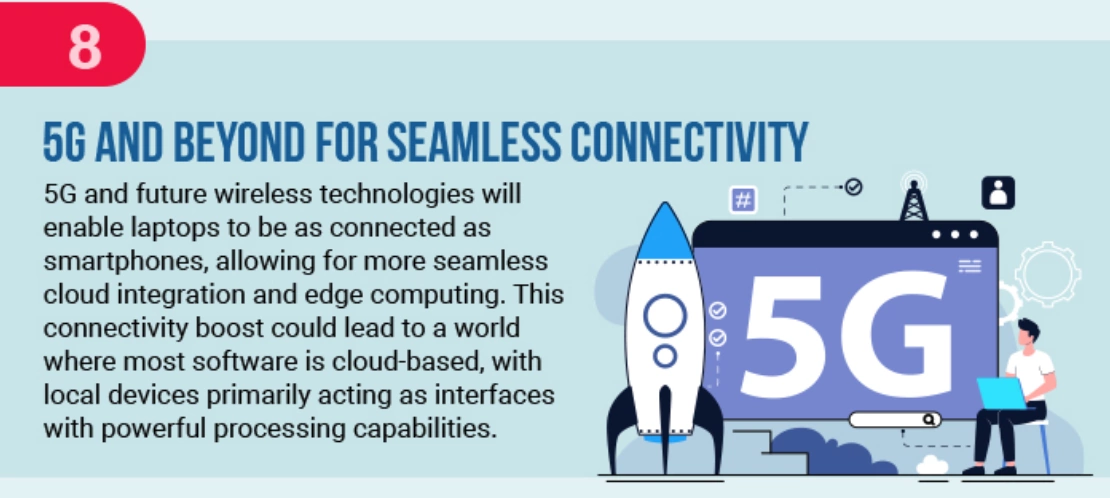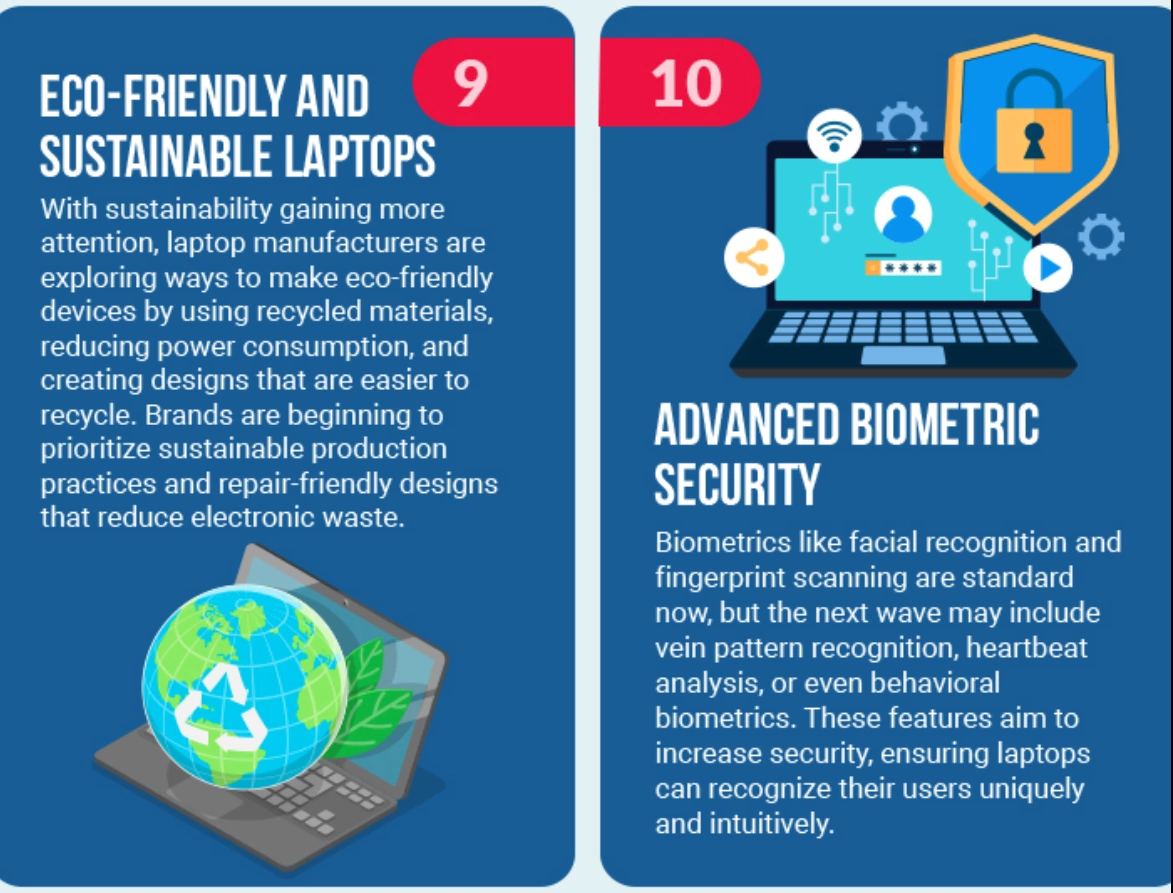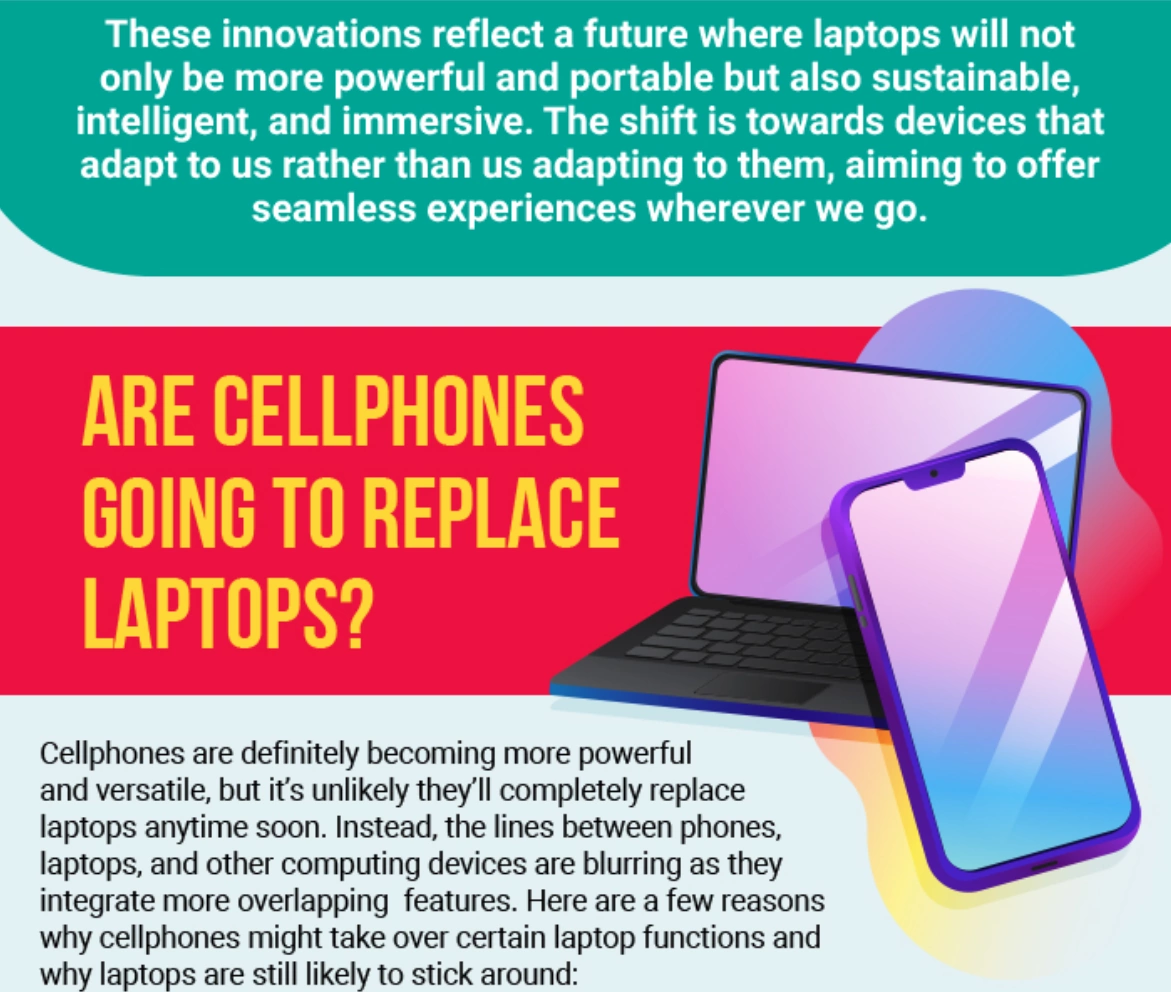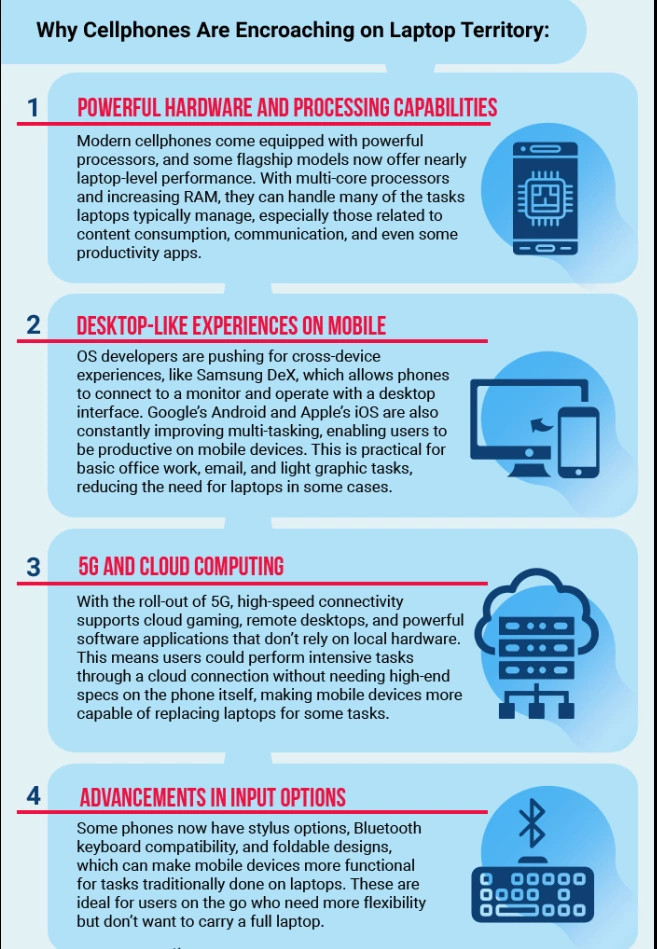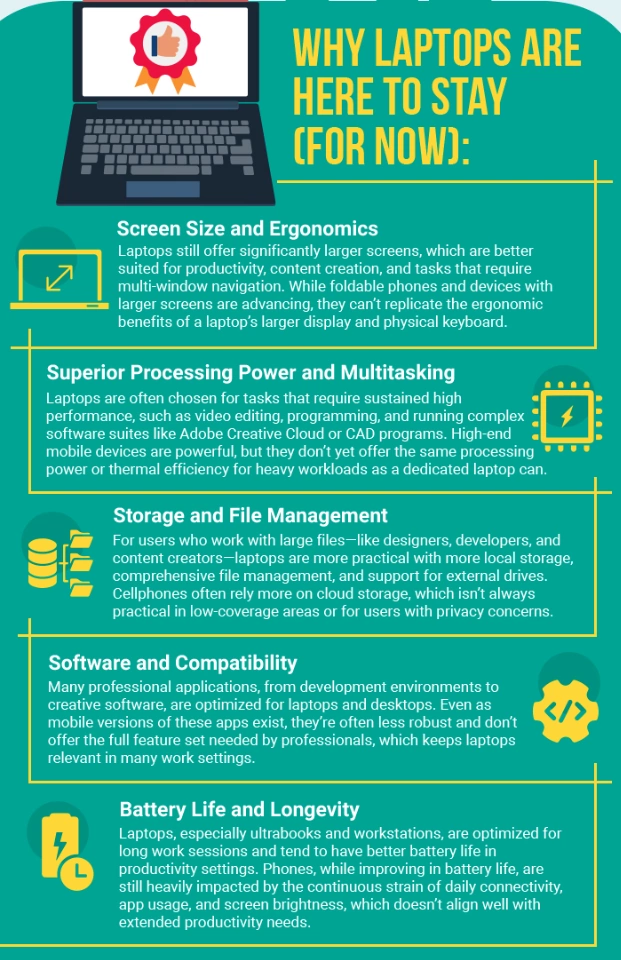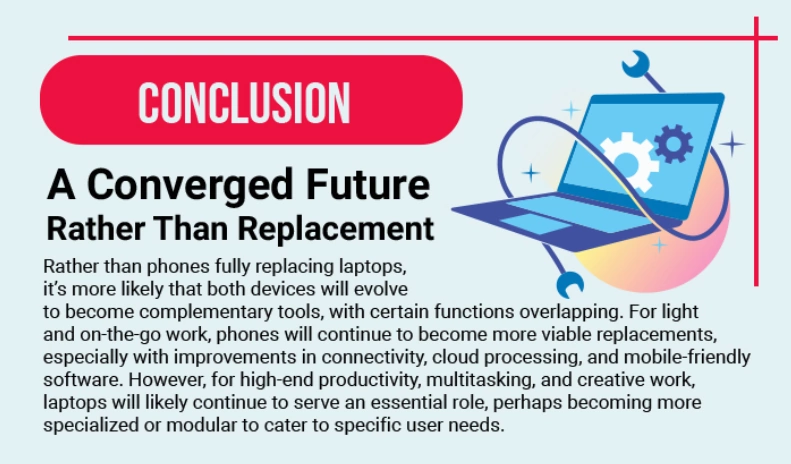The future of laptops
The future of laptops is set to be exciting and transformative, with trends and innovations that respond to increasing user demands for power, portability, and versatile functionality. Here are some key trends expected to shape the future of laptops:
1. Foldable and Flexible DisplaysFoldable screens are starting to gain traction, allowing laptops to have larger screens that fold into smaller form factors. These devices may start with two screens that fold or a single continuous display. The flexible OLED or microLED technology behind these could lead to highly adaptable designs, potentially reducing the need for tablets as separate devices.
2. Increased Portability and Ultra-Thin DesignsWith each generation, laptops are getting thinner and lighter. Advancements in battery technology, heat management, and new materials like carbon fiber and graphene will further reduce weight and thickness without compromising performance. This trend also aims to improve durability, so these slimmer designs are resilient against drops and daily wear.
3. Enhanced AI and Machine Learning CapabilitiesAI-powered features will help laptops perform tasks more efficiently, from optimizing power consumption to assisting users with day-to-day tasks. Personal AI assistants may become more advanced, enabling real-time language translation, contextual assistance, and even predictive typing or task suggestions based on user behavior.
4. Battery Life Improvements with New TechnologySolid-state batteries and supercapacitors could dramatically increase battery life while reducing charge times. Some companies are also experimenting with solar-powered laptops and wireless charging, which could one day allow laptops to charge through ambient room light or seamlessly top up with wireless charging stations.
5. Integrated Augmented Reality (AR) and Virtual Reality (VR)laptops are increasingly being used for mixed reality experiences. Future laptops might incorporate AR and VR functionalities directly into their displays or include built-in projectors or holographic capabilities for more immersive experiences. This development is expected to support training, gaming, and even remote collaboration with 3D visualizations.
6. Modular and Upgradable DesignsCompanies are already beginning to experiment with modular laptops, where components like RAM, storage, and GPUs can be upgraded by users. As a result, this modular approach allows for future-proofing devices, reducing electronic waste, and giving users the freedom to enhance performance as needed.
7. Quantum Computing (Long-Term)Though still far off, quantum computing is a significant area of research. As quantum technology matures, it could one day influence laptop performance, bringing speeds previously unimaginable. Initially, this will likely be seen in specialized computing environments, but advancements could trickle down to consumer-grade devices.
8. 5G and Beyond for Seamless Connectivity5G and future wireless technologies will enable laptops to be as connected as smartphones, allowing for more seamless cloud integration and edge computing. This connectivity boost could lead to a world where most software is cloud-based, with local devices primarily acting as interfaces with powerful processing capabilities.
9. Eco-Friendly and Sustainable LaptopsWith sustainability gaining more attention, laptop manufacturers are exploring ways to make eco-friendly devices by using recycled materials, reducing power consumption, and creating designs that are easier to recycle. Brands are beginning to prioritize sustainable production practices and repair-friendly designs that reduce electronic waste.
10. Advanced Biometric SecurityBiometrics like facial recognition and fingerprint scanning are standard now, but the next wave may include vein pattern recognition, heartbeat analysis, or even behavioral biometrics. These features aim to increase security, ensuring laptops can recognize their users uniquely and intuitively.
Are cellphones going to replace laptops?
Cellphones are definitely becoming more powerful and versatile, but it’s unlikely they’ll completely replace laptops anytime soon. Instead, the lines between phones, laptops, and other computing devices are blurring as they integrate more overlapping features. Here are a few reasons why cellphones might take over certain laptop functions and why laptops are still likely to stick around:
1. Powerful Hardware and Processing CapabilitiesModern cellphones come equipped with powerful processors, and some flagship models now offer nearly laptop-level performance. With multi-core processors and increasing RAM, they can handle many of the tasks laptops typically manage, especially those related to content consumption, communication, and even some productivity apps.
2. Desktop-Like Experiences on MobileOS developers are pushing for cross-device experiences, like Samsung DeX, which allows phones to connect to a monitor and operate with a desktop interface. Google’s Android and Apple’s iOS are also constantly improving multi-tasking, enabling users to be productive on mobile devices. This is practical for basic office work, email, and light graphic tasks, reducing the need for laptops in some cases.
3. 5G and Cloud ComputingWith the roll-out of 5G, high-speed connectivity supports cloud gaming, remote desktops, and powerful software applications that don’t rely on local hardware. This means users could perform intensive tasks through a cloud connection without needing high-end specs on the phone itself, making mobile devices more capable of replacing laptops for some tasks.
4. Advancements in Input OptionsSome phones now have stylus options, Bluetooth keyboard compatibility, and foldable designs, which can make mobile devices more functional for tasks traditionally done on laptops. These are ideal for users on the go who need more flexibility but don’t want to carry a full laptop.
Why Laptops Are Here to Stay (for Now):
1. Screen Size and ErgonomicsLaptops still offer significantly larger screens, which are better suited for productivity, content creation, and tasks that require multi-window navigation. While foldable phones and devices with larger screens are advancing, they can’t replicate the ergonomic benefits of a laptop’s larger display and physical keyboard.
2. Superior Processing Power and MultitaskingLaptops are often chosen for tasks that require sustained high performance, such as video editing, programming, and running complex software suites like Adobe Creative Cloud or CAD programs. High-end mobile devices are powerful, but they don’t yet offer the same processing power or thermal efficiency for heavy workloads as a dedicated laptop can.
3. Storage and File ManagementFor users who work with large files—like designers, developers, and content creators—laptops are more practical with more local storage, comprehensive file management, and support for external drives. Cellphones often rely more on cloud storage, which isn’t always practical in low-coverage areas or for users with privacy concerns.
4. Software and CompatibilityMany professional applications, from development environments to creative software, are optimized for laptops and desktops. Even as mobile versions of these apps exist, they’re often less robust and don’t offer the full feature set needed by professionals, which keeps laptops relevant in many work settings.
5. Battery Life and LongevityLaptops, especially ultrabooks and workstations, are optimized for long work sessions and tend to have better battery life in productivity settings. Phones, while improving in battery life, are still heavily impacted by the continuous strain of daily connectivity, app usage, and screen brightness, which doesn’t align well with extended productivity needs.
Conclusion: A Converged Future Rather Than Replacement
Rather than phones fully replacing laptops, it’s more likely that both devices will evolve to become complementary tools, with certain functions overlapping. For light and on-the-go work, phones will continue to become more viable replacements, especially with improvements in connectivity, cloud processing, and mobile-friendly software. However, for high-end productivity, multitasking, and creative work, laptops will likely continue to serve an essential role, perhaps becoming more specialized or modular to cater to specific user needs.
